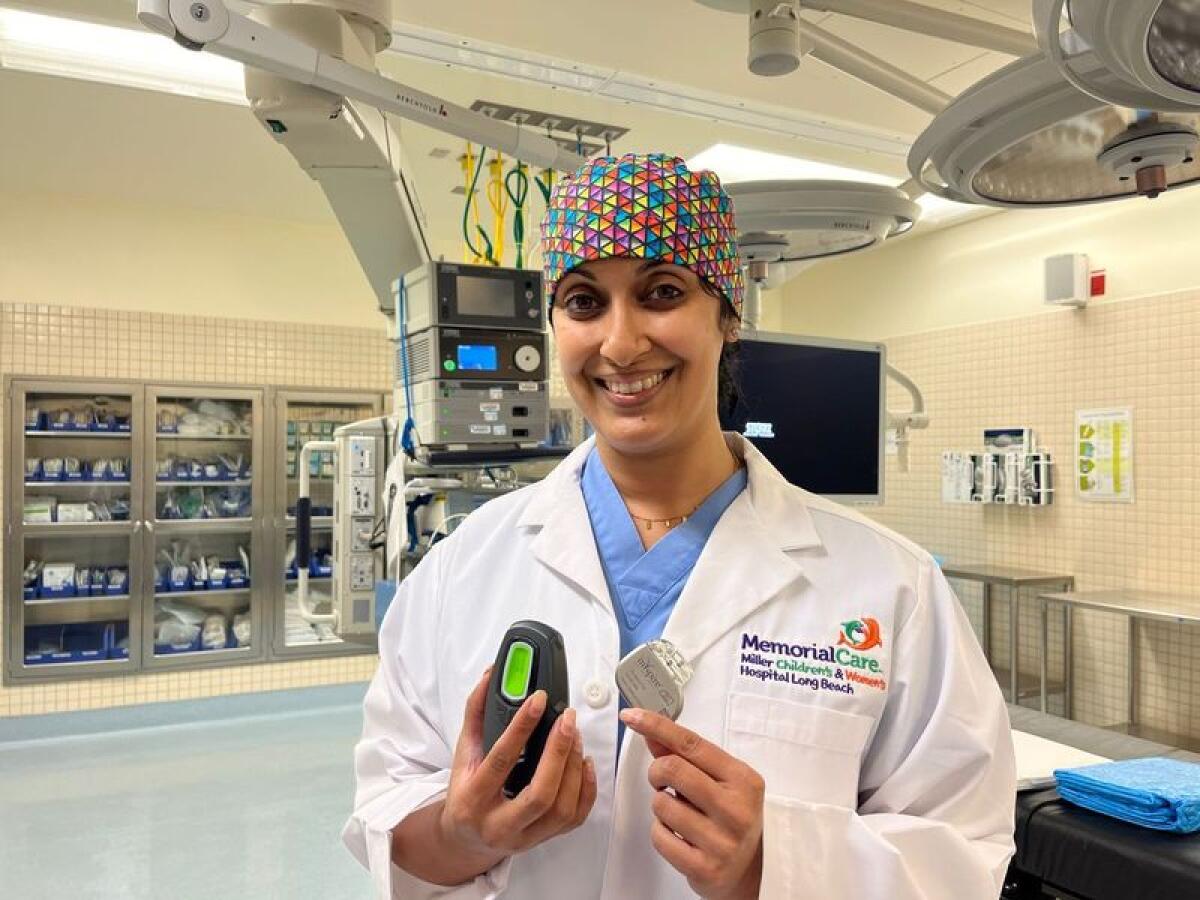Miller Children’s & Women’s Hospital Long Beach Completes First Los Angeles County Pediatric Inspire Procedure

Inspire® Procedure is the first FDA-approved sleep apnea treatment for children with Down syndrome who are unable to use a CPAP.
MemorialCare Miller Children’s & Women’s Hospital Long Beach completed Los Angeles’ first two pediatric Inspire® procedures helping children with Down syndrome suffering from obstructive sleep apnea (OSA). Inspire is an FDA-approved obstructive sleep apnea device that can help treat and prevent sleep apnea for Down syndrome children who cannot use Continuous Positive Airway Pressure (CPAP) therapy and are not effectively treated by adenotonsillectomy (surgical removal of the tonsils and adenoids).
“Over 60% of children with Down syndrome are affected by obstructive sleep apnea since they tend to have smaller breathing pathways, lower muscle tone and enlarged adenoids, tonsils and tongues obstructing their airway,” says Gary Feldman, M.D., medical director, Pediatric Sleep Program at Stramski Children’s Developmental Center, MemorialCare Miller Children & Women’s Hospital Long Beach. “Left untreated, obstructive sleep apnea will significantly impact children with Down syndrome, often affecting their language, behavior and ability to do well in school.”
OSA occurs when the airway collapses during sleep. This prevents the child from taking a good breath while sleeping, leading to a drop in the amount of oxygen in the blood. The brain senses this and will wake the child up long enough to take a good breath, after which the child returns to sleep. This cycle of not breathing well, then briefly waking to get a few good breaths, can continue throughout the night. In severe cases, this can lead to high blood pressure and have negative effects on the heart, but in all cases, the child is not getting a good night’s rest.
Since many of these patients have enlarged tonsils and adenoids, surgery to remove the tonsils and adenoids is the traditional first-line treatment option for opening the airway, but studies have shown less than 30% of children with Down syndrome benefit from the procedure. Additionally, CPAP therapy is difficult for this pediatric population because children with Down syndrome are more likely to have sensory difficulties, which can make wearing a CPAP mask extremely difficult as a long-term solution.
“The Inspire system is implanted under the skin of the neck and chest during a short surgical procedure,” says Namrata Varma, D.O., pediatric otolaryngologist, MemorialCare Miller Children & Women’s Hospital Long Beach. “Inspire works inside the body with a patient’s natural breathing process, using mild stimulation to open the airway during sleep, allowing oxygen to flow naturally. The system is activated by a small, handheld remote to turn Inspire on before bed and off when they wake up.”
During sleep, your tongue relaxes. For people with OSA, your tongue relaxes into a position that blocks your airway. The Inspire implant works comfortably inside your body to sense when you take a breath. Then, it gently moves your tongue forward to keep your airway open, helping you breathe regularly and sleep soundly. The device works automatically throughout the night, and the level of stimulation can be adjusted through the handheld remote as needed to ensure comfort and effectiveness.
Because Inspire is a simple, low-maintenance therapy that works without the use of a mask or hose, children are able to sleep more peacefully at night, allowing for more restful sleep. Caregivers report their children with Down syndrome have less daily tiredness and show increased alertness and energy after consistent use of Inspire.
“We are so excited to offer this groundbreaking therapy to our pediatric patients with Down Syndrome,” says Ayal Willner, M.D., pediatric otolaryngologist, MemorialCare Miller Children’s & Women’s Hospital Long Beach. “The ability to provide a treatment that significantly improves sleep quality and overall health for these children is incredibly rewarding.”
The criteria for the pediatric Down Syndrome population to be considered for Inspire include being 13 years of age or older, having a diagnosis of OSA, and having either an inability to tolerate or having failed CPAP.
The safety and efficacy of Inspire were evaluated during the STAR clinical trial. Five-year STAR trial outcomes show patients using Inspire experience significant reductions in sleep apnea events and significant improvements in quality-of-life measures. There have been over 150 peer-reviewed publications on Inspire showing results consistent with those seen in the STAR trial.